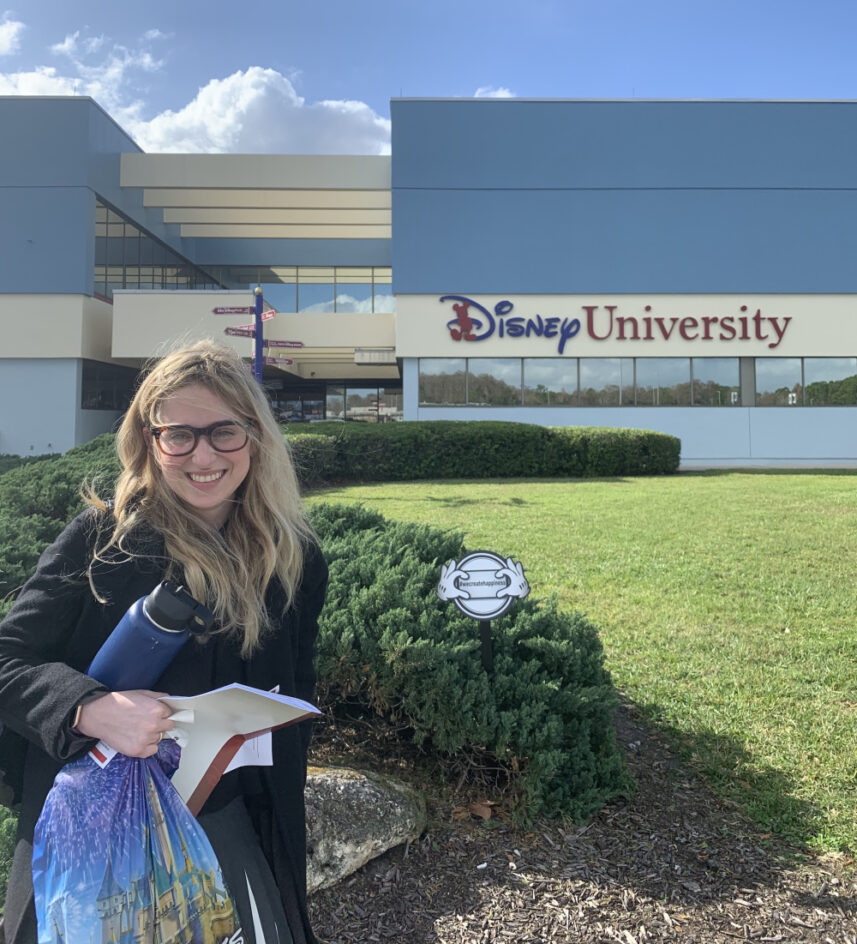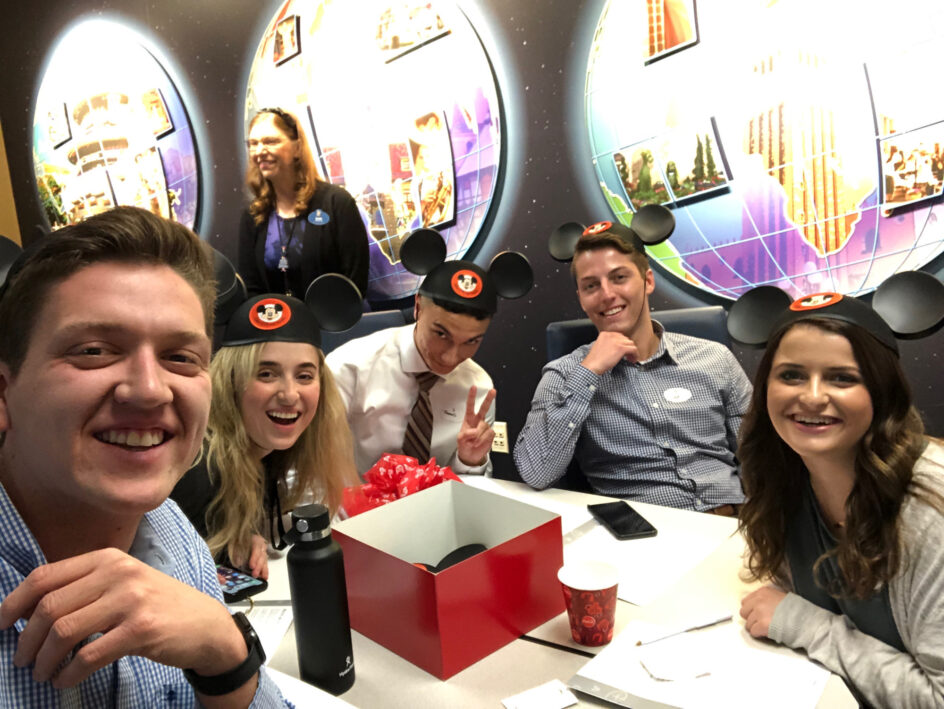Graduate Student Spotlight: Vanessa Klotzman Aims to Make an Impact
 Vanessa Klotzman has always loved numbers. She majored in mathematics at California State University Northridge (CSUN) and thought she might one day teach high school math. Then she took an Introduction to Algorithms course, and her plans changed. She added a minor in computer science and went on to earn her master’s degree in software engineering at CSUN. After several tech jobs and internships, including interning as a software engineer at Walt Disney World, she is now at UCI in the Donald Bren School of Information and Computer Sciences (ICS). The informatics Ph.D. student is exploring how to optimize machine learning models to help generate commit comments during code development. In addition to her research, she has taught ICS 33: Intermediate Programming, is collaborating with a data scientist at Children’s Hospital of Orange County, and is mentoring high school students. Although Klotzman is only one year into her Ph.D. program, she is already realizing her long-term goal of positively impacting others.
Vanessa Klotzman has always loved numbers. She majored in mathematics at California State University Northridge (CSUN) and thought she might one day teach high school math. Then she took an Introduction to Algorithms course, and her plans changed. She added a minor in computer science and went on to earn her master’s degree in software engineering at CSUN. After several tech jobs and internships, including interning as a software engineer at Walt Disney World, she is now at UCI in the Donald Bren School of Information and Computer Sciences (ICS). The informatics Ph.D. student is exploring how to optimize machine learning models to help generate commit comments during code development. In addition to her research, she has taught ICS 33: Intermediate Programming, is collaborating with a data scientist at Children’s Hospital of Orange County, and is mentoring high school students. Although Klotzman is only one year into her Ph.D. program, she is already realizing her long-term goal of positively impacting others.
What drew you to math and computer science?
When I went to CSUN, I knew I wanted to learn math because I really liked statistics, where you’re solving real-world problems and doing a lot of modeling. I always liked the real-world aspect and I always loved numbers, so I thought to myself, “Maybe I want to be a high school math teacher.”
But all math majors at CSUN are required to take a class called Introduction to Algorithms.
At first, I was kind of scared to take the course, but I really enjoyed it. The class was all about understanding how to develop an application. Developing a proof is like developing a program — you’re following a certain algorithm, following certain steps, and the beauty about math and computer science is there’s no need to memorize everything because there are many different ways to solve a problem.
Also at CSUN, there was this wonderful organization called META+LAB, and I worked there as a full-stack web developer. It provided experience in following Scrum and Agile as we developed web applications for the university and outside companies. That led me to do a master’s in software engineering at CSUN.
What led you to UCI for your Ph.D.?
While working on my master’s degree, I got to do a lot of research and I had the opportunity to work on a thesis project using natural language processing to see if we could create a recommendation system model to improve the four-year graduation rate in the CSU system. It was a very cool project, and even though I was working at the same time, I noticed I liked doing research, reading academic articles, and exploring new topics, and that led me to think I might be a good candidate for a Ph.D. program.
I had a really good professor in my master’s program, Dr. George Wang, who was actually a UCI graduate. He told me about the Ph.D. program in software engineering at UCI. He was a very good mentor for me, and I applied in December of 2019. When I found out I got into UCI, I was doing backflips I was so excited! I found out when I was interning in Florida at Walt Disney World.
How was your experience as a software engineering intern for Walt Disney World?
It was a really cool experience [even though it quickly became remote because of the pandemic]. I worked with the team at Walt Disney World, basically re-creating the merchandise system for parks and resorts. There’s this whole system under the hood so if you want to buy, say, a Mickey doll, it has to go through this web database to make sure it’s the same price in different parts of the resort.
I also worked on optimizing certain systems and using machine learning techniques to make recommendations, so if you’re buying a Mickey doll at Disney.com, maybe you’d also like to buy some Minnie Mouse ears.
Before that internship, I worked at Disney in Burbank on Disney Life, the product that came before Disney+. It was a really great experience working at Disney — I loved it — so maybe one day I’ll go back, but right now I’m focused on my research.

Can you talk a bit about your research?
Right now I’m working on my advancement to candidacy. My first year I published a paper and it got accepted for ESEM 21. We did some software repository mining to see if there were changes in public software development contributions during the COVID-19 pandemic. That was my first-year project, learning how Ph.D. research works.
Now I’m working on a literature review to evaluate different machine learning models for commit comment generation to optimize results. So basically, when you put your code on GitHub and have to write your little message, we all know that as programmers, sometimes people can get a bit lazy with their descriptions of what they did. If you have a new developer come into the project, they might be confused. “What did this person do? I don’t understand!” So maybe in the future, we can have a machine do it for us so there’s no questions about what happened during development.
On the side, I’m also working with Children’s Hospital of Orange County, partnering with one of the data scientists doing some machine learning and health research. It’s a little side project just because I really have a passion for healthcare, and when I was an undergrad, I did a lot of mathematical disease modeling. So we’re researching things like can we use models to predict hospitalization rates for children with COVID who have Down syndrome or another medical condition, or can we use natural language processing to review physician records?
And what motivated you to also start mentoring students through Lumiere Education?
I had a wonderful mentor when I was in high school. I had this math teacher who basically made me want to pursue math and, because of her, I’m here today in this Ph.D. program. I feel it’s important for the next generation to have strong mentors, and I think it’s so great that high school students have this opportunity to do research. So what this company does is match high school students who apply with a mentor. As a mentor, I can then accept the student if the research interest is a good fit. I then basically guide the student in creating and hopefully publishing a research paper.
I’m currently working virtually with two very gifted students. One girl from India is using machine learning to predict, based on certain characteristics, if a tennis player can make the top 100 list, and another guy from Dubai is using machine learning — including recurrent neural networks and linear regression techniques — to generate recommended DJ playlists. We meet a couple times a week for an hour or so, and it’s really fun. These students are so smart!
Any advice for prospective grad students?
Be resilient. If you work hard, you are capable of anything. Anyone can go into a Ph.D. program as long as you have the passion for it and put in the time and effort. Even though it’s hard, don’t give up. I literally did my first year in the Ph.D. program from bed, because I had three hip surgeries. I still took classes each quarter, did research and taught, and I managed to make it through with flying colors. I even published a paper.
What are your future goals?
I would love to be a professor, but I also would like to be in research, maybe working at a hospital doing computational data science or working as a research software engineer focused on improving healthcare. I’ll be happy anywhere working in technology as long as I can make an impact.
— Shani Murray